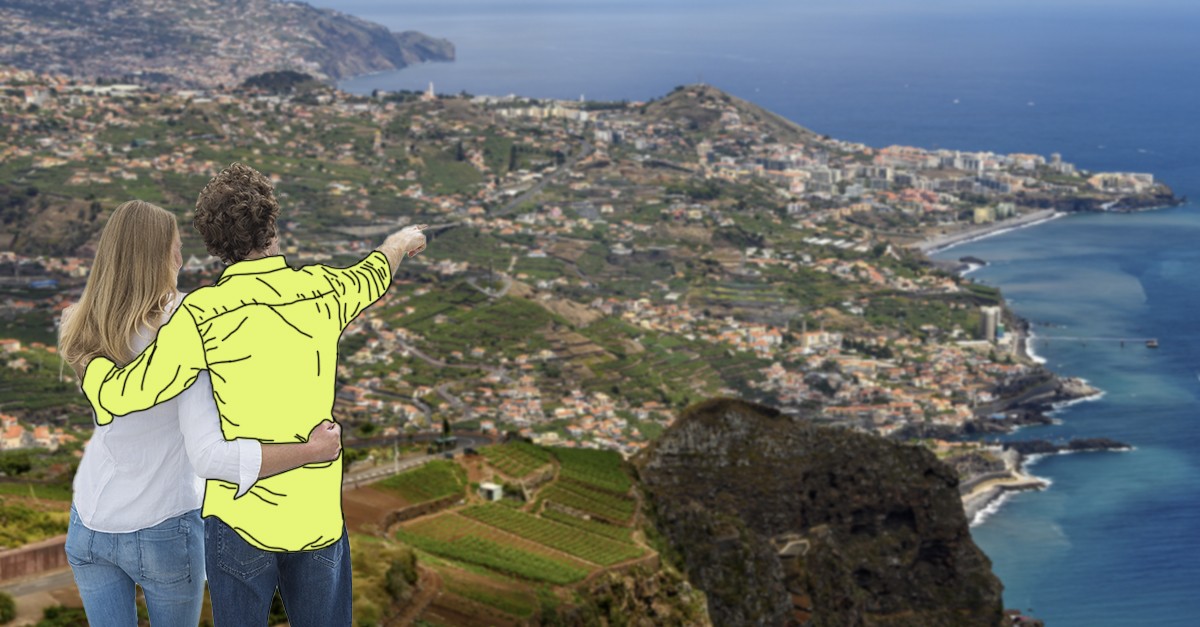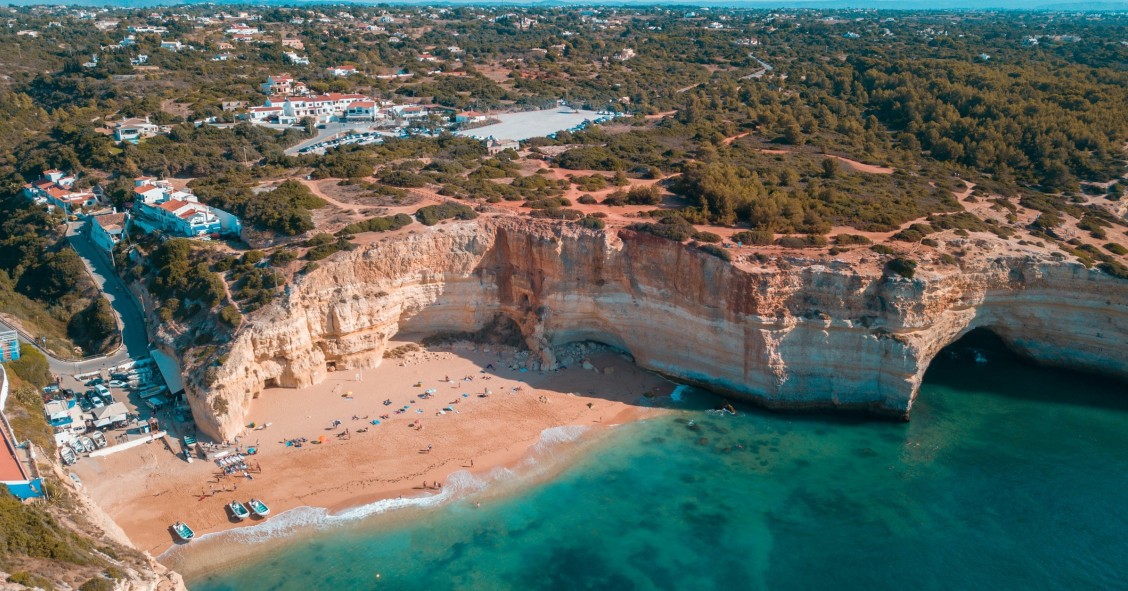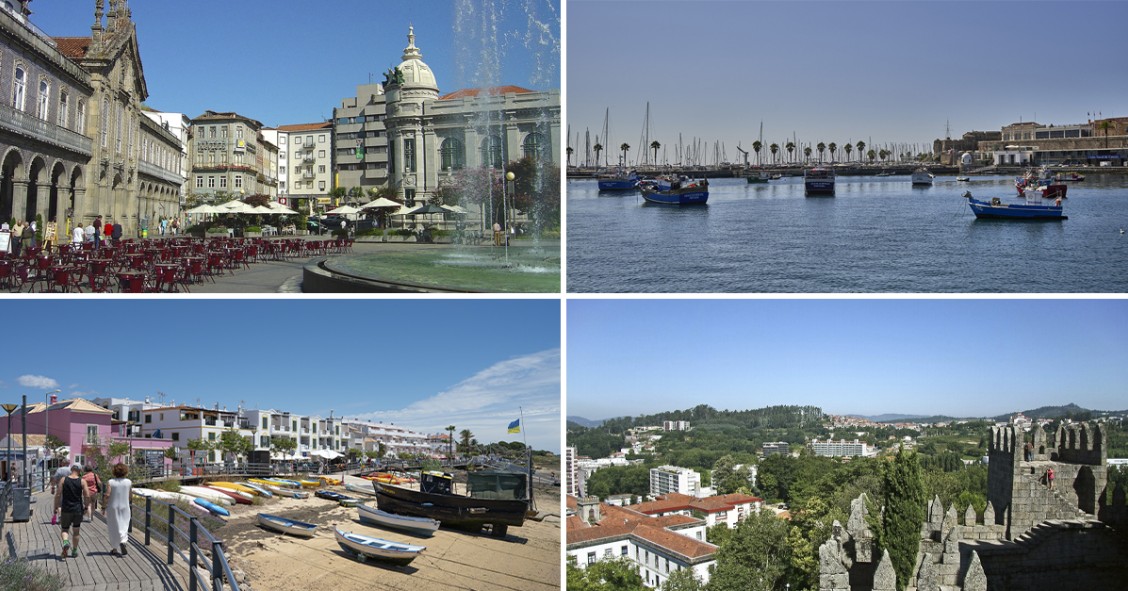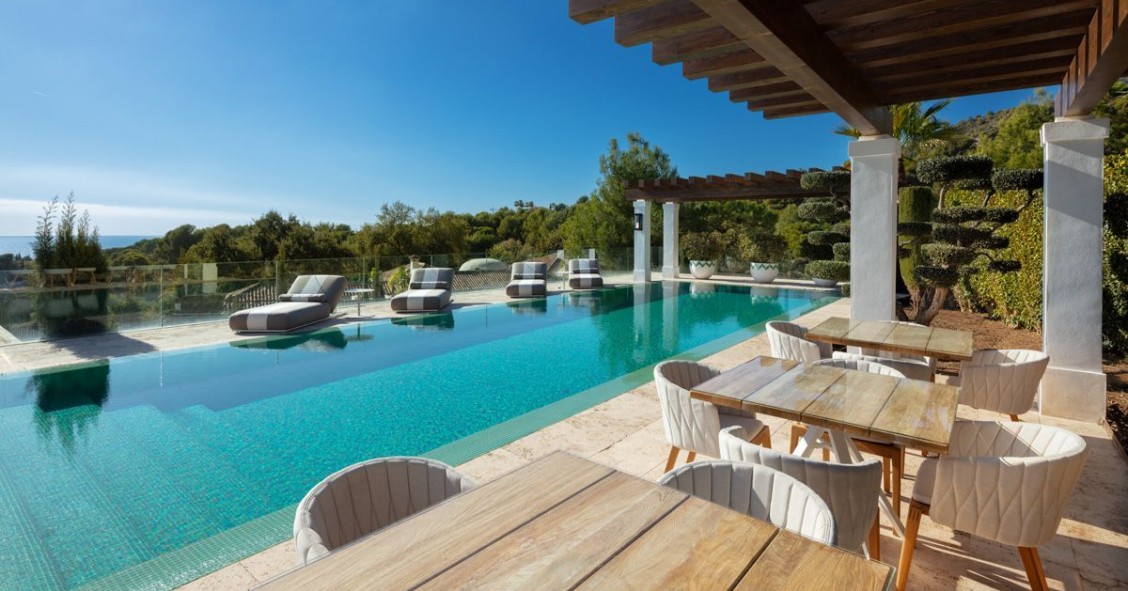
The Portuguese islands, nestled in the heart of the Atlantic Ocean, have become a magnet for local property buyers. Foreigners, too, are enchanted by their stunning natural landscapes, rich cuisine, exceptional quality of life, and pleasant climate, even as recent changes have reduced tax incentives for real estate investments. The latest data from idealista/data reveals that non-residents already account for around half of the demand for houses for sale in several of the Azores islands. On Madeira Island and Porto Santo, at least three in every ten people searching for homes live abroad.
Demand for homes to buy in each territory of the country is primarily driven by Portuguese buyers, accounting for over half of the interactions recorded on idealista listings during the quarter ending in October 2024. However, there is one exception: on the island of Santa Maria, in the Azores, international demand for houses (58.8%) has surpassed domestic interest.
Analysing the origin of property searches in each territory, foreigners have a significant presence across all Portuguese islands. In the Autonomous Region of the Azores, not only do international buyers dominate the interest in homes on Santa Maria Island, but they also account for nearly half of the demand for housing on the islands of Pico, Flores, Corvo, and Graciosa. On São Jorge, Faial, São Miguel, and Terceira, international demand represents more than one-third of total searches. Most enquiries for properties in the Azores come from the USA, Germany, and Canada.
In the Autonomous Region of Madeira, international demand for houses is notable, though less intense than in the Azores. Around three in every ten people searching for homes on Porto Santo Island do so from abroad. On Madeira Island itself, international interest accounted for 42.5% of total demand over the last three months to October. Here, searches mainly originate from Germany and the United Kingdom, according to idealista/data.
Alongside the Portuguese islands, demand for houses from abroad is also significant in the Faro district (the Algarve), accounting for 35.8% of total interest. Meanwhile, Lisbon and Porto sit at the bottom of the table, with international interest representing just 12.1% and 13.7% of total property searches in each district, respectively.
Stay updated with the latest property market information and data reports through our daily and weekly newsletters.
Foreign demand for housing in Portugal is recovering
Foreigners continue to drive the housing market, particularly in the Portuguese islands, despite having fewer tax benefits today for living, working, or engaging in real estate transactions in Portugal. It should be noted that the previous government, under Costa, ended the Golden Visa programme for real estate investment in October 2023 nationwide, despite opposition from the regional governments of the Azores and Madeira. At the beginning of the year, the Non-Habitual Residents (NHR) regime was also abolished and replaced with a more restrictive one.
What has been observed in Portugal in recent months is a recovery in foreign interest in purchasing property in the country, following a sharp decline in demand between December 2023 and July 2024, largely due to the end of these tax advantages. While in the second quarter of this year foreigners accounted for only 13.5% of the total demand for homes in Portugal, in the three months ending in October, international citizens now make up 18.8% of the total (+5.3 percentage points).
Now, international demand for housing primarily comes from France, the United Kingdom, and the United States, in that order. This is the current top three after a shift in nationalities from October 2023, when the end of the Golden Visa programme came into effect with the "Mais Habitação" initiative – up until then, demand from the US had been in first place.
After the storm, foreigners are likely adjusting to the new tax rules in Portugal, which have not changed with the new government under Montenegro. Now, attention is on the regulation of the recent Incentivo Fiscal à Investigação Científica e Inovação (IFICI+), which replaces the old NHR regime. Additionally, a new "solidarity" Golden Visa has been introduced, directing private investment into projects that support vulnerable immigrants.
Alongside all of this, it is important to remember that the fundamentals of the property market in Portugal have not changed, and the country remains an attractive place to buy property and invest in this sector. Many foreigners continue to be drawn to the quality of life, safety, low prices, and climate that our country offers, which drives demand for housing, already high and exceeding supply. For this reason, and others, it is expected that property prices will continue to rise in 2025.



